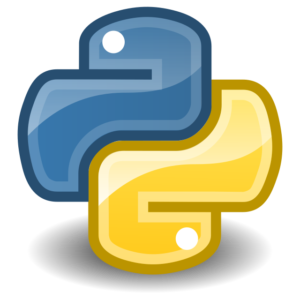Master Functional Programming in Python: What to Look for in a Course
Are you looking to level up your Python skills by mastering functional programming? As a beginner or intermediate Python developer, understanding functional programming can help you write cleaner, more efficient code. Master Functional programming in python course but, how do you choose the right one? In this guide, we’ll walk you through the essential features to look for in a functional programming in Python course, ensuring you make the best choice for your learning journey.
Understanding Functional Programming in Python
Before diving into a course, it’s crucial to understand what functional programming is and how it applies to Python. Functional programming is a paradigm where computation is treated as the evaluation of mathematical functions, avoiding changing states and mutable data. In Python, this approach encourages the use of functions, immutability, and the avoidance of side effects, leading to more predictable and reliable code.
Key Concepts to Expect in a Course
- Pure Functions: Learn how to write functions that produce the same output given the same input, without side effects.
- Immutability: Understand the importance of immutability in reducing bugs and making your code more predictable.
- Higher-Order Functions: Explore how to use functions that take other functions as arguments or return them as results.
- First-Class Functions: Discover how Python treats functions as first-class citizens, allowing you to assign them to variables, pass them around, and return them from other functions.
When choosing a course, make sure it covers these fundamental concepts thoroughly, as they are the building blocks of functional programming in Python.
The Benefits of Functional Programming for Python Developers
Why should you care about functional programming? When selecting a course, look for one that emphasizes the practical benefits of this paradigm. Functional programming offers numerous advantages that can enhance your coding skills and make you a more effective developer.
Improved Code Readability and Maintainability
Courses should demonstrate how functional programming promotes writing small, pure functions that are easy to understand and maintain. This modular approach to coding reduces the likelihood of bugs and makes your codebase more manageable.
Enhanced Problem-Solving Techniques
Functional programming courses should teach you how to tackle complex problems with more abstract and efficient solutions. Concepts like higher-order functions and recursion allow you to write elegant, concise code.
Real-World Applications
Look for a course that provides real-world examples of functional programming in action. Whether it’s data processing, web development, or machine learning, the course should show you how to apply functional programming principles in practical scenarios.
Key Features to Look for in a Functional Programming Course
Not all courses are created equal. Here are some key features to consider when choosing a course on functional programming in Python:
Comprehensive Curriculum
A good course should start with the basics and gradually move into more advanced topics. Ensure the curriculum covers everything from basic functional programming principles to advanced concepts like recursion and functional design patterns. Check for these modules:
- Module 1: Introduction to Python and Functional Programming Basics
- Module 2: Higher-Order Functions and Lambdas
- Module 3: Working with Pure Functions and Immutability
- Module 4: Mastering Python’s Map, Filter, and Reduce
- Module 5: Understanding Recursion and Functional Design Patterns
- Module 6: Advanced Functional Programming Concepts
Hands-On Coding Exercises
Learning functional programming requires practice. Choose a course that includes hands-on coding exercises and projects, allowing you to apply what you’ve learned in real-time. Look for courses that offer:
- Interactive coding challenges
- Real-world projects
- Practice with Python’s functional programming libraries
Interactive Learning Tools
Engagement is key to mastering new concepts. Courses that provide quizzes, flashcards, and other interactive tools can help reinforce your learning. Consider courses that offer:
- Regular quizzes to test your understanding
- Flashcards for quick reviews of key concepts
- Access to a community forum for discussion and support
Flexibility and Accessibility
When choosing a course, consider your learning style and schedule. Look for courses that offer flexibility, such as:
Self-Paced Learning
Many online courses allow you to learn at your own pace, making it easier to fit learning into your schedule. Make sure the course offers lifetime access to the materials so you can revisit the content whenever needed.
Accessible on Multiple Devices
Choose a course that is accessible on various devices, whether you prefer learning on your laptop, tablet, or smartphone. This allows you to study on the go and at your convenience.
Instructor Expertise and Support
The quality of the instructor can make a significant difference in your learning experience. When browsing for a course, consider:
Instructor Credentials
Look for courses taught by experienced Python developers with a solid background in functional programming. Check for their credentials, teaching experience, and industry expertise.
Support and Feedback
Ensure the course offers access to the instructor or teaching assistants for support. This could be through Q&A sessions, discussion forums, or direct messaging. Some courses even offer personalized feedback on your coding exercises and projects.
Course Pricing and Value for Money
Price is always a consideration, but value for money is what really matters. When evaluating courses, think about:
What’s Included
Does the course offer additional resources like eBooks, cheat sheets, or lifetime access to course updates? These extras can add significant value to your learning experience.
Discounts and Bundles
Many platforms offer discounts or bundle courses together at a reduced rate. Be on the lookout for these deals to get the most out of your investment.
The Complete Python Bootcamp From Zero to Hero in Python
100 Days of Code: The Complete Python Pro Bootcamp
Python : Master Programming and Development with 15 Projects
Conclusion: Start Your Functional Programming Journey Today
Functional programming is a valuable skill that can greatly enhance your Python development capabilities. By choosing the right course, you can master this paradigm and apply it to real-world projects, improving your coding efficiency and problem-solving skills. Use the tips in this guide to find a course that fits your needs and start your journey into functional programming today.
FAQs About Functional Programming in Python Courses
Do I need prior Python experience to take a functional programming course?
Most courses are designed for those with basic Python knowledge, but some offer introductory modules to get you up to speed.
How long does it take to complete a functional programming course?
The duration varies depending on the course, ranging from a few hours to several weeks, depending on your pace and the depth of content covered.
Will I receive a certificate after completing the course?
Many courses offer certificates of completion, which you can add to your resume or LinkedIn profile.
Can I access the course materials after completion?
Most online courses offer lifetime access, allowing you to revisit the materials whenever you need a refresher.
What are the prerequisites for learning functional programming in Python?
Basic knowledge of Python is usually required. Understanding programming fundamentals like variables, loops, and functions will help you grasp functional programming concepts more easily.




